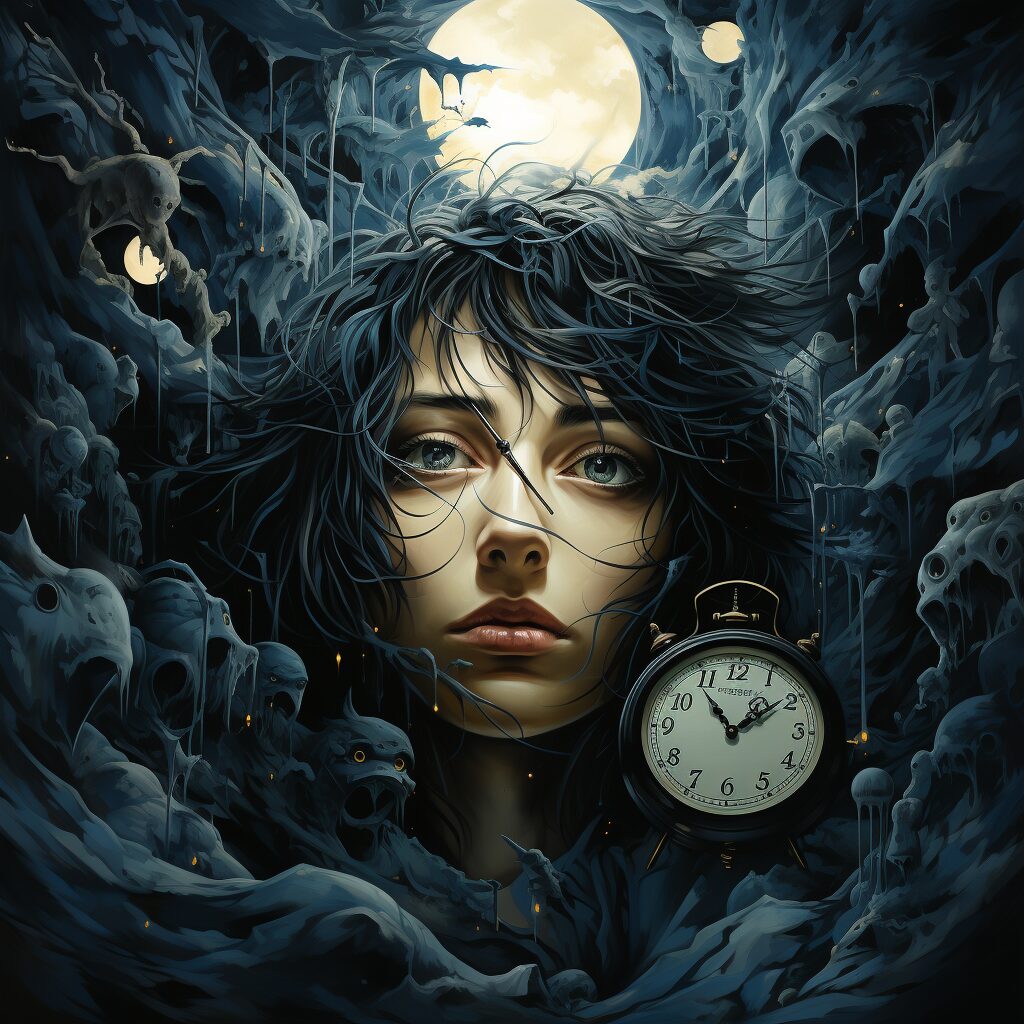Insomnia is one type of sleep disorder, along with excessive sleepiness, frequent awakening and disruption of the circadian cycle of sleep and wakefulness, among others. As such, sleep disorders often co-occur with other psychiatric disorders, such as depression and somatic diseases. There are a number of treatment pathways for insomnia, and CBD and other cannabinoids of hemp are being explored for use in the treatment of sleep disorders.
Insomnia - When is it diagnosed?
Insomnia is classified in the DSM-5 as one of ten sleep and wakefulness disorders.
Patients experiencing sleep disorders typically find their sleep unsatisfactory, both in terms of quality and length, as well as bedtimes. A common result of inadequate recovery is a sense of constant fatigue, lowered mood, poorer concentration and irritability.
According to the DSM-5 diagnostic criteria, insomnia can be said to occur when a patient describes his or her sleep as unsatisfactory due to one or more symptoms:
- difficulty falling asleep,
- difficulty maintaining sleep - frequent awakenings, difficulty falling asleep again after awakening,
- Waking up early in the morning and having difficulty falling asleep again.
With the patient/client declaring that the sleep disturbance reduces the comfort of life and impedes daytime functioning.
In insomnia, sleep-related difficulties occur for at least three nights a week. A distinction is also made between episodic insomnia (sleep-related difficulties occur for more than a month but less than three months), persistent insomnia (sleep-related difficulties occur for more than three months) and recurrent insomnia (sleep-related difficulties have occurred at least twice in the past year).
ISI Insomnia Severity Scale (Insomnia Severity Index) is used to determine the intensity of insomnia symptoms, which helps determine its severity. The scale contains seven questions that address: difficulty falling asleep and staying asleep, waking up too early, how the environment reacts to sleep problems, how the person feels during the day, to what extent the person worries about sleep problems and the degree of satisfaction with nighttime rest.
Other diagnostic criteria for insomnia are:
- Insomnia occurs despite favorable sleeping conditions.
- Insomnia cannot be explained on the basis of another sleep and wakefulness disorder.
- Sleep disorder is not caused by taking a substance: drugs, psychoactive substances.
- Co-occurring mental disorders and somatic do not fully explain sleep problems.
Other sleep and wakefulness disorders:
- disorders with insomnia,
- A disorder with excessive sleepiness,
- narcolepsy,
- Sleep disorders associated with sleep-disordered breathing,
- Disruption of circadian rhythms of sleep and wakefulness,
- Non-REM sleep-wake disorder,
- sleep nightmares,
- REM sleep behavior disorder,
- restless legs syndrome,
- Substance/drug-induced sleep disorder.
Insomnia and other diseases
Sleep disorders can be an early symptom of other psychiatric disorders, they can accompany depression, anxiety disorders or disorders cognitive functions. They are also a risk factor for addiction to psychoactive substances with which the patient(s) try to save themselves (at night: alcohol, opioids, benzodiazepines; during the day: stimulants such as amphetamine or cocaine, excessive caffeine and nicotine consumption). It is because of this co-occurrence that sleep disorders are included in the classification of mental disorders.
The co-occurrence of sleep disorders with somatic diseases is so common that it is considered the rule rather than the exception. The most common comorbidities are: sleep disorders associated with sleep-disordered breathing, cardiovascular and respiratory diseases, neurodegenerative diseases, musculoskeletal diseases, cardiovascular diseases.
A closed circle of insomnia
In psychiatry, the phenomenon of the closed circle of insomnia is well known, when the thoughts, emotions, actions and physiological reactions of the patient(s) drive the insomnia. People who have trouble falling asleep and observe the negative effects of not sleeping during the day, after some time begin to stress over this state of affairs, which only makes it more difficult for them to calm down and fall asleep in the evening. Stress causes physiological arousal, accompanied by greater preoccupation with the subject of sleep and excessive attention to it, which often leads to a worsening of the problem.
Behaviors that perpetuate insomnia and heighten arousal:
- abnormal sleeping times,
- sleeping during the day,
- Spending too much time in the bedroom or bed,
- fear of insomnia,
- Concerns about how one will function during the day,
- Obsessively glancing at your watch at night,
- Nocturnal activity in the bedroom (e.g., cleaning the bedroom at night with the light on).
Insomnia - treatment
Psychotherapy
The goal of therapy may be to break the vicious cycle in which psychological and behavioral factors reinforce insomnia. Cognitive-behavioral psychotherapy helps change beliefs and habits that are harmful to sleep.
Recommendations for insomnia sufferers include avoiding other activities in bed (eating, watching TV, reading), limiting time spent in bed and stimulus control techniques. The idea is that a person suffering from insomnia should go to bed when he or she is sleepy and the likelihood of falling asleep is greatest. If awakened, it is recommended to leave the bed/sleeping room and return only when drowsiness sets in - the idea is to build a bed-sleep association.
Pharmacotherapy
Antidepressants or anti-anxiety drugs are used to treat insomnia. In milder forms melatonin is also used to benefit the quality and quantity of sleep in the elderly or in people experiencing insomnia due to shift work or frequent crossing of time zones (jet lag).
CBD in the treatment of insomnia
Research overview On medical cannabis and insomnia suggests that CBD may have therapeutic potential here.
- Full spectrum hemp cannabinoids can alleviate sleep apnea and thus have a positive effect on a person's mood during the day, including reducing sleepiness and feelings of fatigue.
- CBD is considered a promising substance in disorder REM sleep phase, which causes daytime sleepiness.
- Synthetic CBD (nabilone and dronabinol) has shown beneficial short-term effects in sleep apnea.
- Nabilone helps individuals reduce the number and intensity of nightmare dreams. It also makes it easier for patients/people whose insomnia is associated with chronic pain to fall asleep.
Results of another research show the beneficial effects of CBD on sleep quality and length in insomnia occurring with anxiety disorders. The researchers observed 72 adults experiencing anxiety and/or insomnia who were administered CBD.
In the first month of treatment, 57 out of 72 (79%) people observed lower levels of anxiety (maintained until the end of the study), 48 out of 72 (68%) declared an improvement in the quality and length of sleep, with the percentage increasing as the treatment continued. The vast majority of people tolerated CBD well.
Most of the scientific articles reporting research on the effects of CBD other cannabis substances on sleep disorders and insomnia concludes that researchers are optimistic about benefiting from the therapeutic properties of these substances in the future. They see a need for more clinical trials involving patients/women with diagnosed sleep disorders.








